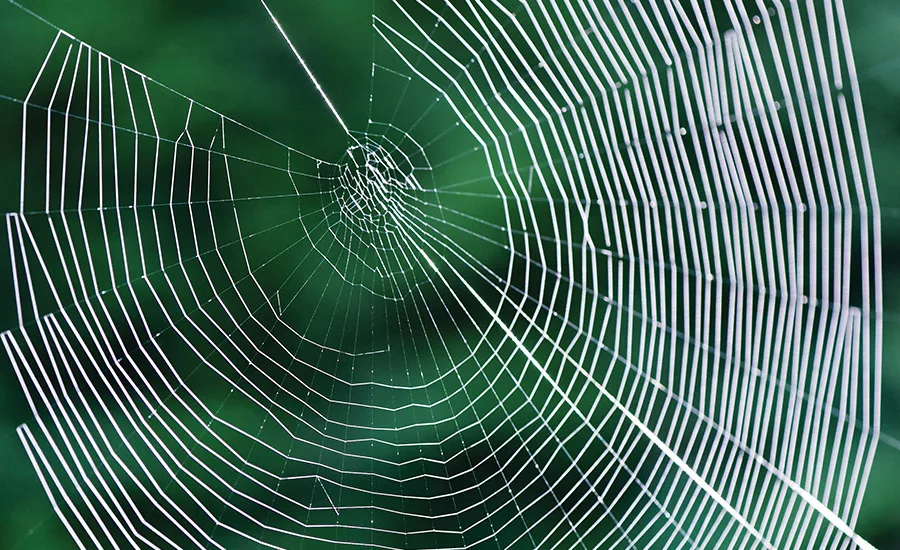Advancing Adhesives
Spider Silk Brings Adhesive Opportunities
Spider silk has the potential for industrial use in applications including ligament and tendon repair, advanced coatings, and bioadhesives.

Utah State University recently received a Small Business Innovation Research (SBIR) Phase II contract with Salt Lake City-based Technology Holding LLC from the U.S. Army to continue research and development of spider silk manufacturing. The total contract is $1 million and is being managed through the Army Research Office. Under the terms of the SBIR contract, Utah State and Technology Holding will deliver to the Army multiple lengths of fiber made from synthetic spider silk to test for the uniformity of the manufacturing process, multiple swatches of knit material, raw spider silk fiber for strength and elasticity testing, and an economic analysis of the cost of manufacturing.
“One of the strongest materials known to man, spider silk has almost infinite applications, including in the defense, medical and automotive industries,” said Randy Lewis, biology research professor and director of the USU Synthetic Bioproducts Center and Utah Science Technology. “The challenge has always been developing ways in which to produce synthetic spider silk in quantities sufficient enough for mass manufacturing. Recently, working with Technology Holding, the USU Synthetic Bioproducts Center has been making great strides in developing processes and technologies to more efficiently produce and process synthetic spider silk, which triggered the SBIR contract from the Army.”
Technology Holding has developed a proprietary process for protein production that, when used with the USTAR Bioproducts Scale-Up Facility that opened earlier this year at Utah State, enables scientists and engineers to demonstrate the viability of commercial production.
“Technology Holding LLC considers the relationship with USU as a major asset in commercialization of this technology,” said Robert Price, a principal investigator of the project.
“There has been substantial interest in scaling up of this bioprocess from many corners of the industry,” said Mahesh Bule, senior scientist at Technology Holding and a leading expert in bioprocess technology.
Spider silk is stronger than Kevlar and more elastic than nylon, making it a product that has interested industries seeking better solutions for products. Lewis is a prominent researcher in the development and use of spider silk for potential industrial uses in a variety of applications, including ligament and tendon repair, advanced coatings, high-tech clothing, parachutes, bioadhesives, time-release coatings, and airbags. Among the researchers’ goals is to address the use of fossil fuels for the production of materials such as nylon and the foreign energy resources for raw materials issues that are limited in the production of synthetic spider silk.
For more information, visit www.usu.edu.
About the Synthetic Bioproducts Center
Driven by today’s environmental, health and economic challenges, the Synthetic Bioproducts Center intends to take advantage of recent bio-scientific advances to enable living organisms (single-cell organisms, plants, and animals) to transform raw materials into environmentally friendly products such as low-cost therapeutics, antimicrobials, biomaterials, and pharmaceuticals. Embedded within the Colleges of Science and Engineering at USU, the SBC brings together university researchers and USTAR faculty to create new manufacturing processes using biological cells as factories.
About Technology Holding LLC
Founded in 2002, Technology Holding LLC focuses on commercialization of breakthrough technologies in the area of renewable materials. Technology Holding is a federal contractor with awards from the DOD, the DOE, NSF and the USDA.
Looking for a reprint of this article?
From high-res PDFs to custom plaques, order your copy today!



.webp?height=200&t=1715382350&width=200)

